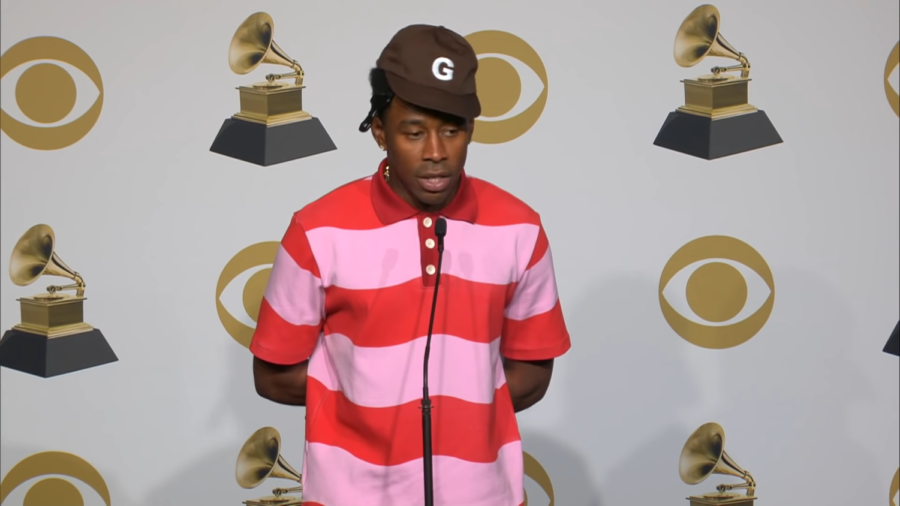The Grammys’ to-do list: nothing
Tyler, The Creator says he feels “half-and-half,” after winning Best Rap Album at the 62nd Annual Grammys.
June 16, 2020
After winning Best Rap Album for “IGOR” at this year’s 62nd Annual Grammy Awards, Tyler, The Creator felt honored yet conflicted.
In a post-show interview, he expressed gratefulness for his art attracting widespread appreciation, but compared the feeling of capturing his newly won award to being handed an unplugged video game controller by an older cousin so he could, “shut up and feel good about it.”
“IGOR” embraced pop and rhythm and blues influences, making an even bigger departure from his rapping roots than Tyler, The Creator’s previous album “Flower Boy.” By many listener’s accounts, “IGOR” wouldn’t be a described as a strictly rap album, or a mostly rap album, or even a halfway rap album.
“It sucks that whenever we, and by we I mean guys that look like me, do anything that’s genre-bending or anything, they always put it in a rap or urban category,” Tyler, The Creator said. “I don’t like that urban word. It’s just a politically correct way to say the N-word to me, so when I hear that I’m like, why can’t we just be in pop?”
Last Wednesday, the Recording Academy announced changes for next Grammy Awards, including renaming the “urban contemporary” category to “progressive R&B.” Stemming from long-time criticism the Recording Academy has received for use of the term “urban,” the move is also in reaction to recent protests against police brutality and systemic racism targeting the Black community.
“Progressive R&B” makes more sense from a practical standpoint than “urban contemporary,” (urban contemporary is not a real genre of music and was a term coined in the radio industry when marketing to particular audiences). R&B can be progressive in terms of style and sound, but to music fans it’s so niche of a genre that when used by the Grammys it immediately strikes as tone deaf. At first read of this change one might think they’re reading satire on brand’s rampant empty symbolism and half-hearted attempts at showing solidarity in standing against racial injustice.
The newly renamed category will “highlight more progressive elements of R&B and may include samples and elements of hip-hop, rap, dance, and electronic music. It may also incorporate production elements found in pop, euro-pop, country, rock, folk and alternative,” according to a statement by the Recording Academy.
Besides its incorrectly specific naming, the category opens up a wide range of sounds to be considered for nomination, which would be exciting on paper, but in the hands of the Recording Academy it’s more likely Black artists on the forefront of new sounds have only been pushed farther into a corner.
Even with Tyler, The Creator at the Recording Academy’s own event speaking openly on inclusion for Black artists in white dominated categories and acknowledging the box Black artists are consistently thrown into, the best they can do is a name change. If anything, the Recording Academy is further exposing their inability and/or unwillingness to listen.







